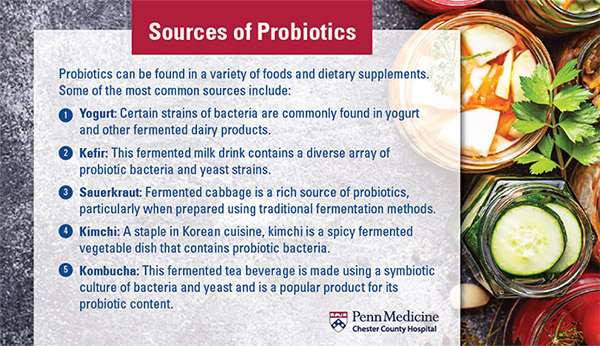
In the realm of health and wellness, the terms "probiotics" and "prebiotics" have been gaining significant attention. With products like kombucha growing in popularity in recent years, chances are you've stumbled across probiotics. You might have even seen them advertised on yogurt containers, dietary supplements or skincare products.
But what exactly are probiotics and prebiotics, and should you be incorporating them into your daily routine?
Understanding Probiotics
Probiotics are live microorganisms that, when consumed or applied to the body in adequate amounts, can have health benefits. Most commonly, probiotics are bacteria, although some yeasts can also serve this purpose. The human gut is home to trillions of microorganisms, collectively known as the gut microbiota, which play a crucial role in various aspects of health, including digestion, immune function, and some research suggests it may affect your mood.
"One of the primary functions of probiotics is to maintain a healthy balance of gut bacteria, and certain factors such as antibiotic use, stress, poor diet, and illness can disrupt this balance, leading to an overgrowth of harmful bacteria and potential health issues," says Michele Francis, Director, Community Health and Wellness, Chester County Hospital. "By introducing beneficial bacteria through probiotic supplements or fermented foods, individuals aim to support their gut microbiota and promote overall well-being."

In addition to food sources, probiotic supplements are widely available and may contain specific strains of bacteria in concentrated forms. When choosing a probiotic supplement, it's essential to select one that contains strains supported by scientific evidence for the intended health benefit.
Research into the health benefits of probiotics is ongoing, and while the findings are promising, more studies are needed to fully understand their effectiveness. Some of the potential benefits associated with probiotic consumption are aiding in digestion, boosting immune support, reducing symptoms of anxiety and depression and improving skin health.
Prebiotics: Fuel for Probiotics
Francis says that while probiotics receive much of the spotlight, prebiotics are equally important for maintaining a healthy gut environment.
"Prebiotics are non-digestible fibers that serve as fuel for probiotic bacteria, helping them thrive and multiply in the gut," notes Francis. "Common sources of prebiotics include certain types of fiber, such as inulin and resistant starch, which are found in fruits, vegetables, whole grains, and legumes."
By consuming a diet rich in prebiotic fibers, individuals can support the growth and activity of beneficial bacteria in the gut, ultimately enhancing the effectiveness of probiotics. Additionally, some foods and supplements known as synbiotics are formulated with both probiotics and prebiotics to maximize their effects on gut health.
Should You Be Taking Probiotics and Prebiotics?
The decision to incorporate probiotics and prebiotics into your daily regimen ultimately depends on your individual health goals and circumstances. While some people may benefit from them, others may achieve their health goals through a healthy diet alone.
If you're considering probiotic or prebiotic supplementation, it's essential to consult with a professional, particularly if you have any underlying health conditions or are taking medications. A healthcare provider can offer personalized guidance based on your specific needs and help you select the most appropriate products. Additionally, you can explore community health and wellness resources at Chester County Hospital to learn more about how to live a healthy lifestyle.
It's also important to remember that probiotics and prebiotics are not a one-size-fits-all solution. The effectiveness of these supplements can vary based on factors such as the type and dose of microorganisms, the duration of supplementation, and individual differences in gut microbiota composition.
Get Proactive About Probiotics and Prebiotics!
Find out more about probiotics and prebiotics and if they are right for you by meeting with a Chester County Hospital primary care provider today. A professional can help equip you with the proper information and tools to get you started on your journey.